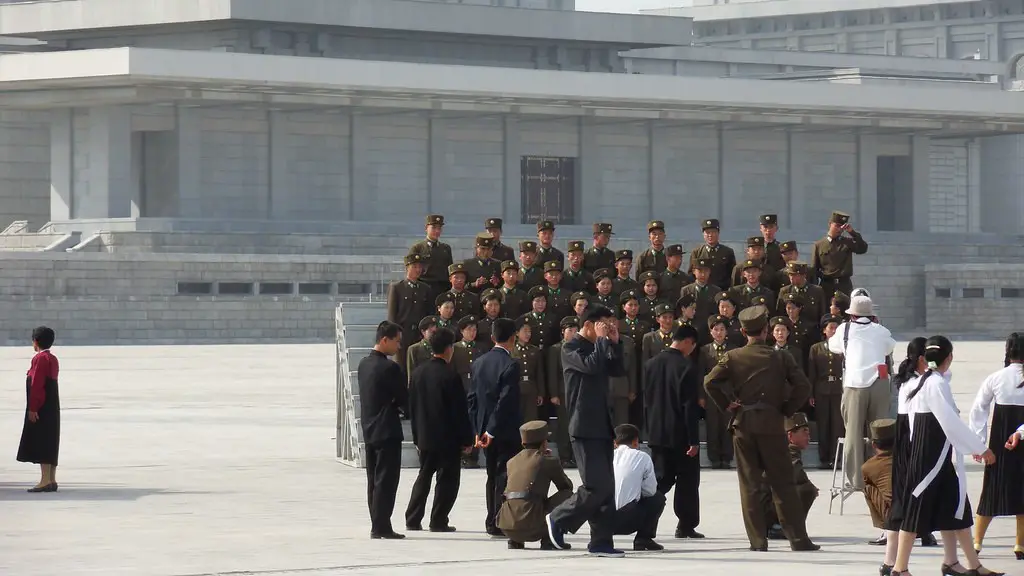Reasons Behind North and South Korea Divided
North and South Korea have been divided since the end of the Korean War in 1953. During the war, the Soviet Union, the United States, and China all had a major influence on the outcome. The division was not only physical but ideological, with North Korea becoming a Communist dictatorship while South Korea adopted a democratic government. This difference in government has only deepened the division between the two countries.
The division of North and South Korea has created a number of economic and political problems for both countries. It has made trade difficult and impoverished the citizens of both nations. North Korea’s economic problems are particularly dire, with the United Nations estimating that over two-thirds of the population is living in poverty. The situation in the South has been significantly better, although there are still economic issues that need to be addressed.
Political Challenges for North and South Korea Reunification
Given the stark differences between the two nations, it is clear that reunifying them will not be an easy task. The two countries have fundamentally different political systems and ideologies and do not recognize each other as legitimate nations. In addition, the governments of both countries have long pursued fundamentally different foreign policy agendas.
The international community has also played an important role in maintaining the division between North and South Korea. The United Nations and many countries have imposed a variety of sanctions against North Korea and have also provided much-needed economic assistance to South Korea.
Non-Governmental Efforts to Reunite North and South Korea
Despite the political and economic divisions between the two Koreas, there are a number of people and organizations that are taking steps to improve relations between the two countries. The Korean Peace Network, for example, is a non-governmental organization that is dedicated to promoting dialogue and understanding between the two sides.
The Korean Peace Network has taken a number of steps to bring the two sides together, such as organizing exchanges between citizens and helping to foster better understanding between the two countries. They have also held a number of public forums and workshops to discuss reunification and the challenges it would bring.
Economic Disparity Between North and South Korea
While the two sides have made small steps towards improving relations, there is still a long way to go. The two countries remain economically divided, with South Korea’s Gross Domestic Product (GDP) being more than forty times that of North Korea’s. This economic disparity has been a major hurdle to reunification and is likely to remain one for the foreseeable future.
Given the economic gulf between the two nations, it is unlikely that reunification will be possible in the near term. The economic burden of reunification on South Korea would be immense, as it would have to provide massive amounts of aid to the citizens of both countries.
Korean Attitude Towards Reunion
Despite the economic and political differences between North and South Korea, many people in both countries are still in favor of reunification. Polls have found that, while a slim majority of South Koreans favor reunification, there is an overwhelming majority of North Koreans who are in favor of it.
This enthusiasm is not shared by everyone, however. Many experts have argued that reunification is not feasible in the near term and might even do more harm than good. They have argued that the gap between North and South Korea is too large and that the costs of reunification would be too high.
Global Efforts to Reunite North and South Korea
The international community has also played an important role in the efforts to reunite North and South Korea. A number of countries, including the United States, have been involved in multilateral talks designed to promote better relations between the two countries. In recent years, a number of high-level international conferences have been held to discuss the future of the Korean Peninsula.
These efforts have seen some progress, with North and South Korea agreeing to open a number of border crossing points for family reunions and the establishment of an inter-Korean liaison office in 2018. While these steps have been welcomed, they have not resulted in meaningful advances towards reunification.
Outlook For North and South Korea Reunification
The outlook for North and South Korea reunification is uncertain, as there are a number of challenges that need to be overcome. These include the deep ideological, economic, and political divisions between the two countries. In addition, the international community is unlikely to support a reunification if it risks instability in the region.
At the same time, there is a strong desire among both North and South Koreans for reunification, and many see it as an achievable goal. The next few years are likely to be critical, as both sides will need to take concrete steps towards reconciling their differences and finding a peaceful solution to the long-standing conflict.
Role Of The United States In North and South Korea Reunification
The United States has long been involved in efforts to reunite North and South Korea and will likely continue to be a major player in the process. However, it is possible that the US may take a lesser role in the negotiations, as it is increasingly becoming clear that reunification must be a process led by the Koreans themselves.
In addition, the US will need to play a careful balancing act, as any excessively hawkish stance on North Korea could spur the latter to become more belligerent and make reunification more difficult. At the same time, the US must be firm in standing up for its allies and ensuring that the North Koreans adhere to the principles of a reunification agreement.
Impact Of China and Japan On North and South Korea Reunification
China and Japan are two of the most influential countries in East Asia and have both made significant contributions to regional stability. China, in particular, has been a major supporter of North Korea’s economy and has long advocated for a peaceful resolution to the Korean conflict.
Japanese Prime Minister Shinzo Abe has also taken an increasingly active role in trying to resolve the Korean conflict, visiting both North Korean and South Korean leaders in an attempt to bridge the gap between the two countries. However, his efforts have been met with limited success and many are skeptical of his ability to facilitate a meaningful dialogue between the two sides.
Possible Impact Of North and South Korea Reunification On The Global Economy
The potential reunification of North and South Korea could have a major impact on the global economy, as it would open up a sizable new market for international businesses. In addition, it could lead to increased cooperation between North and South Korea and between North Korea and the rest of the world, which could create new economic opportunities for all involved.
At the same time, reunification could bring about a number of problems for both countries and for the region as a whole. For example, it could lead to increased tension between North Korea and South Korea, as well as between North Korea and the US, China, and Japan. It could also lead to an increase in the number of refugees and a massive influx of North Korean workers into the South Korean labor market.
Conclusion
The reunification of North and South Korea is a complex and delicate issue that requires careful consideration. Reunification would be a major milestone for the Korean people and would have wide-reaching implications for the region as a whole. At the same time, there are a number of challenges that need to be addressed before reunification can become a reality. The international community, as well as citizens of both countries, need to work together in good faith to find a resolution that is in the best interest of the Korean people.


